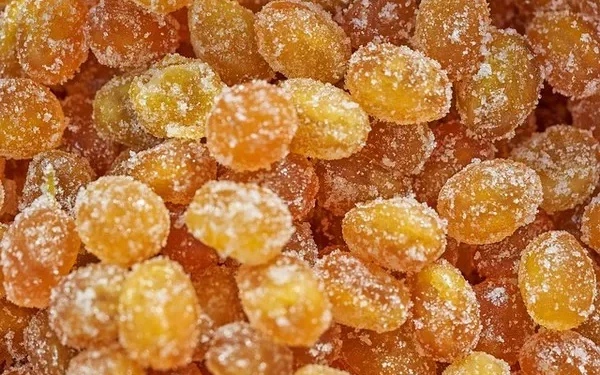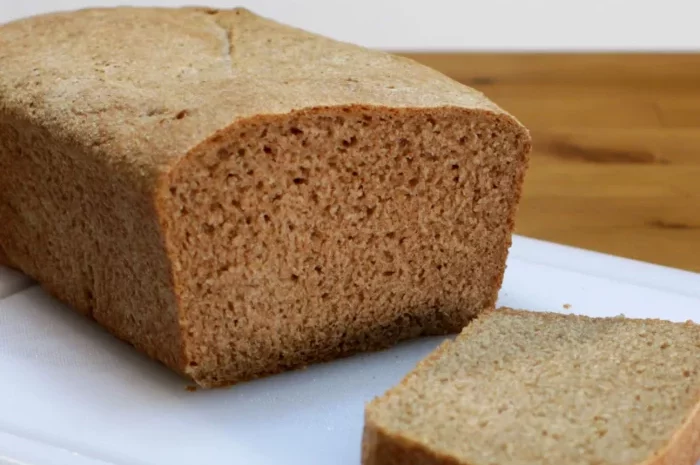For individuals living with diabetes, managing blood sugar levels is a crucial part of daily life. While the need to limit sugar intake is well-known, the types of sugar and carbohydrates consumed can significantly impact overall health. This article explores which sugars are suitable for diabetics, how they affect blood sugar levels, and what choices can be made to ensure optimal blood glucose control.
Understanding Sugar and Diabetes
Diabetes is a condition where the body’s ability to regulate blood glucose (sugar) is impaired. The two most common types are Type 1 and Type 2 diabetes. In both cases, managing blood sugar through diet is essential to prevent complications like heart disease, nerve damage, kidney problems, and vision loss.
When we talk about “sugar,” we refer to simple carbohydrates, like glucose, fructose, sucrose, and lactose. These are naturally occurring in foods such as fruits, dairy, and vegetables, but they are also added to processed foods and beverages in the form of table sugar (sucrose) or high-fructose corn syrup (HFCS).
The core concern for diabetics is that the body cannot process sugar efficiently. Insulin, the hormone responsible for helping cells absorb glucose, is either insufficiently produced (in Type 1 diabetes) or the body becomes resistant to it (in Type 2 diabetes). As a result, monitoring sugar intake is critical.
Types of Sugar: Which Ones Are Best for Diabetics?
Diabetics are not expected to completely eliminate sugar from their diets. Instead, they should focus on the types of sugar and the glycemic impact these sugars have on blood glucose levels. To this end, there are various sugars that diabetics can eat, and some are better choices than others. The goal is to focus on sugars that cause a slower rise in blood glucose levels, as opposed to those that lead to rapid spikes.
Natural Sugars in Whole Foods
Fruits: Naturally occurring sugars found in fruits, such as fructose and glucose, are absorbed more slowly by the body due to the fiber content of whole fruits. High-fiber fruits such as berries (blueberries, raspberries, and strawberries), apples, pears, and oranges are excellent choices for diabetics. These fruits have a lower glycemic index (GI), meaning they have a less dramatic effect on blood sugar levels when consumed in moderation.
Berries: Rich in antioxidants and fiber, berries have a low GI and are packed with vitamins and minerals.
Apples and Pears: Contain soluble fiber that helps stabilize blood sugar. The skin of these fruits contains pectin, which may slow glucose absorption.
Citrus Fruits: Lemons, grapefruits, and oranges are excellent choices for their high vitamin C content and low glycemic response.
Dairy: Milk and yogurt naturally contain lactose, a form of sugar. Diabetics should focus on unsweetened, low-fat options. Plain Greek yogurt, for instance, provides protein and probiotics, making it a nutritious choice with a moderate effect on blood sugar levels.
Vegetables: While vegetables contain minimal sugar, some (such as sweet potatoes, carrots, and corn) contain starches that may affect blood glucose levels. Non-starchy vegetables, like leafy greens, cucumbers, and bell peppers, have a negligible impact on blood sugar and are highly recommended for diabetics.
Honey and Maple Syrup: Both honey and maple syrup are natural sweeteners. However, they still contain high amounts of sugar and can raise blood glucose levels. If consumed, it should be in very small amounts, and only in the context of a balanced diet.
Refined Sugar Alternatives
While whole foods like fruits and vegetables should be prioritized, some diabetics may opt for sugar substitutes. These can be used in moderation to satisfy cravings for sweetness without significantly increasing blood sugar levels.
Stevia: This natural sweetener derived from the leaves of the Stevia plant has no calories and does not raise blood sugar levels. Studies show it may even help lower blood pressure, making it a good option for those with hypertension, which is common in diabetics.
Monk Fruit Sweetener: Monk fruit extract is another natural, zero-calorie alternative to sugar. It has a negligible impact on blood glucose levels, making it an excellent choice for diabetics who wish to sweeten their beverages or baked goods.
Erythritol: Erythritol is a sugar alcohol with almost no calories and a glycemic index of zero. It’s well-tolerated by most people, though excessive consumption can lead to digestive discomfort. It is a good choice for cooking and baking.
Xylitol: Another sugar alcohol, xylitol has a low glycemic index and fewer calories than sugar. It can be used as a substitute in baking and cooking, though it can cause digestive upset if consumed in large amounts.
Aspartame and Sucralose: Artificial sweeteners like aspartame (Equal, NutraSweet) and sucralose (Splenda) are widely used as sugar substitutes. While these are safe for most diabetics, some research suggests that excessive consumption of artificial sweeteners may lead to an increased preference for sweetness, which could eventually lead to overeating. Moderation is key.
Agave Nectar: Agave is often marketed as a natural sweetener, but it is high in fructose. While it has a lower glycemic index than sucrose, excessive consumption can still lead to insulin resistance over time. Agave nectar should be used sparingly.
Sugar Alcohols
Sugar alcohols, such as sorbitol, xylitol, and maltitol, are commonly used in sugar-free gum, candies, and other low-carb products. They have fewer calories than sugar and have a minimal effect on blood sugar levels. However, they can cause digestive issues, such as bloating, gas, and diarrhea, especially in larger quantities. Therefore, it’s important to check labels and be mindful of portion sizes.
Processed and Refined Sugars
Table Sugar (Sucrose): Sucrose, the white granulated sugar commonly found in cakes, candies, and sweetened beverages, should be avoided or consumed only in very limited quantities. It has a high glycemic index and can quickly spike blood glucose levels, making it unsuitable for diabetics.
High-Fructose Corn Syrup (HFCS): HFCS is a cheap, processed sweetener found in many packaged foods and drinks. It is particularly problematic because it contains a high concentration of fructose, which can contribute to insulin resistance, obesity, and fatty liver disease when consumed in excess. It’s best for diabetics to avoid HFCS.
Agave and Coconut Sugar: While these are often marketed as healthier alternatives, they are still sugars and contain calories. They have a lower glycemic index than table sugar but can still raise blood sugar when consumed in large amounts. Like other sugars, these should be used sparingly.
Glycemic Index: A Critical Factor in Choosing Sugar
The glycemic index (GI) measures how quickly a carbohydrate-containing food raises blood glucose levels. Foods with a high GI cause a rapid increase in blood sugar, while those with a low GI cause a slower, more gradual rise. Diabetics are encouraged to choose foods with a low to moderate GI, as these help keep blood glucose levels stable.
Foods with a GI of 55 or lower are considered low-GI, while foods with a GI of 56 to 69 are considered medium-GI, and those with a GI of 70 or higher are high-GI foods.
- Low-GI foods include whole grains, legumes, most vegetables, fruits like apples and pears, and dairy products.
- Medium-GI foods include whole-wheat bread, brown rice, and sweet potatoes.
- High-GI foods include white bread, white rice, and processed foods made with refined sugar.
Practical Tips for Diabetics
Balance Your Meals: To help control blood sugar levels, diabetics should consume a balanced diet that includes protein, healthy fats, and fiber alongside carbohydrates. This can slow the absorption of glucose into the bloodstream, reducing the risk of blood sugar spikes.
Moderation is Key: Even with healthier sugar alternatives like stevia or monk fruit, moderation is important. Overconsumption of sweeteners—natural or artificial—can lead to cravings for more sugary foods and may disrupt healthy eating habits.
Read Labels: When shopping for packaged foods, always read nutrition labels carefully. Look out for hidden sugars, including high-fructose corn syrup, cane sugar, and other sweeteners that may contribute to blood sugar spikes.
Exercise Regularly: Physical activity helps regulate blood sugar levels and improves insulin sensitivity. Regular exercise can help offset the impact of some sugars and support overall metabolic health.
Monitor Blood Sugar: Regularly checking blood glucose levels is essential for diabetics, especially when introducing new foods or sweeteners into the diet. This helps ensure that blood sugar levels remain within the target range.
Conclusion
Diabetics should prioritize whole foods, such as fruits, vegetables, and dairy products, that provide natural sugars and are rich in fiber. While sweeteners like stevia and monk fruit are good alternatives to refined sugars, moderation is crucial in managing blood sugar levels. By focusing on low-GI foods, moderating processed sugar intake, and staying active, diabetics can enjoy a balanced diet that supports both their health and well-being.
For anyone with diabetes, it is essential to work with a healthcare provider or dietitian to create a personalized plan that includes the right balance of carbohydrates, healthy fats, and proteins, ensuring blood sugar levels are effectively managed.
Related topics:



























